- Home
- Albany Personal Injury Lawyer, GA
- Nursing Home Abuse
Nursing Home Abuse Lawyer in Albany, GA
If you or a loved one has experienced abuse in a nursing home or assisted care facility in the Albany area, we can help. Whether the abuse was financial, psychological, or physical, you could be entitled to compensation to cover the costs and damages associated with your injuries.
The best way to ensure that you recover the full amount you are entitled to is by working with an attorney. An Albany nursing home abuse lawyer from The Shrable Law Firm, P.C. is standing by to provide you with a risk-free, cost-free consultation on your case.
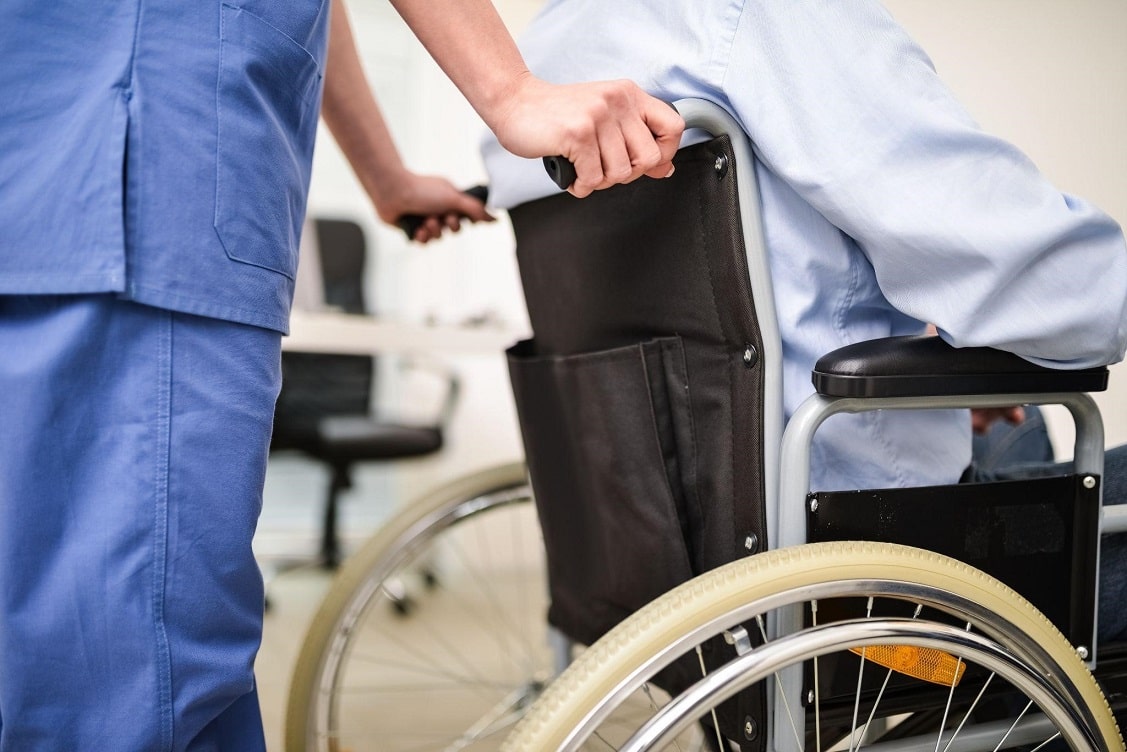
Nursing Homes in the Albany Area
According to nursing home resource Senior Advice, there are eight nursing homes that serve the Albany area, and six others nearby.
The cost of a nursing home in Georgia can be significant, ranging from $116-240 each day, which equals an annual median cost of around $65,000. Nursing homes are paid to provide quality care to all of their patients. When they fail in this and injury results, they may be liable for all associated costs and damages, as we’ll discuss below.
Reporting Abuse in Georgia
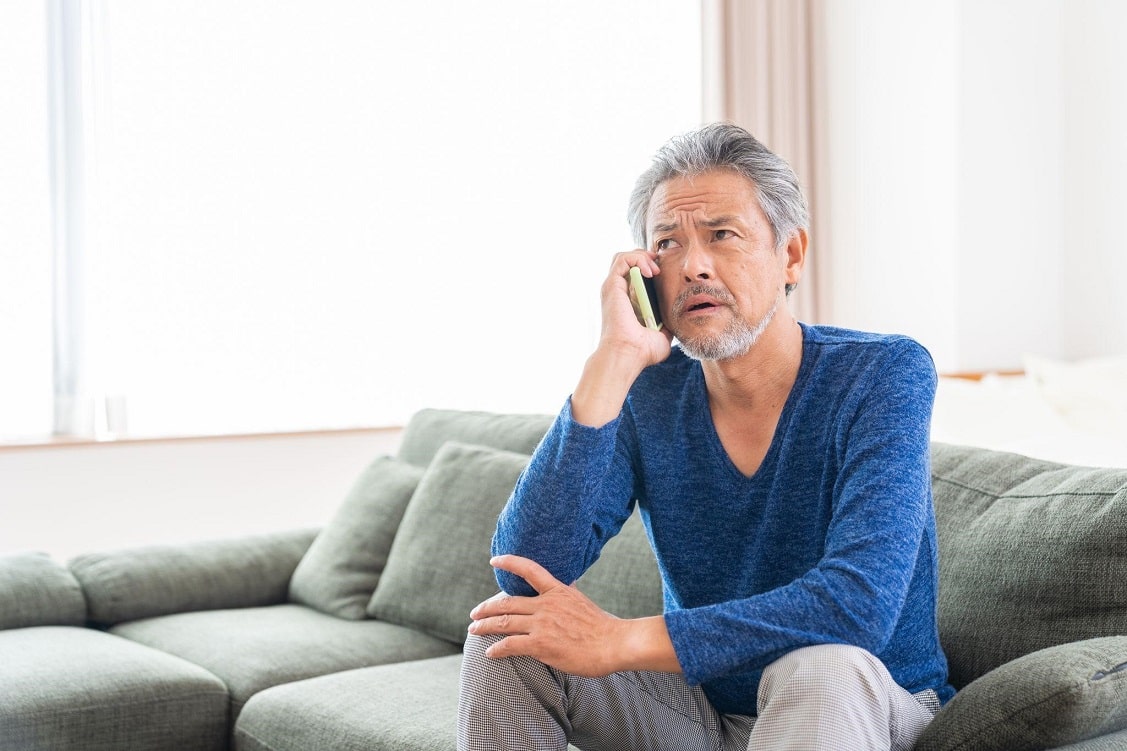
If you suspect nursing home abuse, it’s important to immediately report the abuse to the Georgia Adult Protective Services (APS). The GA APS will conduct an investigation for any report of abuse, neglect, or exploitation of an adult aged 65 or older, or a person aged 18 years or older with a disability.
All reports are confidential. The investigation conducted by the APS can be of use in arguing your case, and also the outcome of other investigations in relation to the nursing home or long-term care facility that caused the injury.
Common Types of Abuse in Nursing Homes
The National Institute on Aging defines elder abuse as any form of abuse of a person who is over the age of 60. According to research, hundreds of thousands of adults over the age of 60 are financially exploited, neglected, or abused every year.
Elder abuse can happen anywhere, including in facilities like nursing homes. Following are some common forms of the types of elder abuse that occur in nursing homes, alongside examples to help you identify instances of abuse.
Physical Abuse
Forms of physical abuse include pushing, slapping, hitting, and more. An additional form of physical abuse includes restraining older adults against their will, whether locking them in a room or binding them to furniture.
If you have a loved one in a nursing home, watch for signs of physical abuse so that they can be identified early to prevent ongoing harm. Obvious signs of physical abuse include bruising, broken bones, bedsores, cuts and scrapes, and other superficially visible injuries.
Checking up on your loved one regularly helps to identify physical abuse early so that it can be stopped, but some signs of abuse cannot be seen easily, such as emotional/psychological abuse.
Emotional Abuse
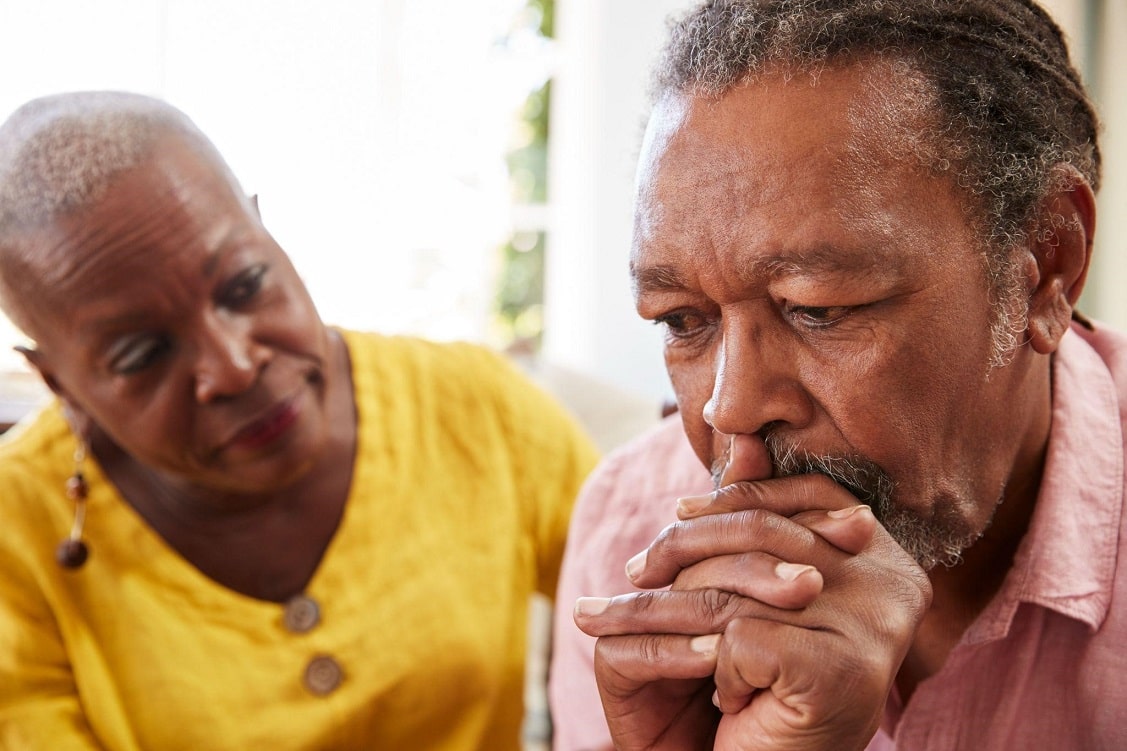
Elders in the care of a nursing home depend on its employees to not only take care of their essential needs but also to treat them with dignity and respect. When elders are not treated well emotionally, they can experience significant mental duress that can lower their quality of life.
Common forms of emotional abuse include a caregiver yelling, threatening, saying insulting or hurtful words, or ignoring the elder person. Another form of emotional abuse is keeping an elder person from seeing close friends and relatives.
Emotional abuse is more difficult to detect than physical abuse as its symptoms aren’t as obvious. Like with physical abuse, the best way to identify emotional abuse is by visiting your elder family members regularly.
Changes in behavior such as a shift in a person’s sociability can indicate that they have been the victim of emotional or psychological abuse.
Sexual Abuse
Sexual abuse is when a caregiver forces an adult to watch or engage in sexual acts against their will, or if they are not in a position to consent.
Signs of sexual abuse can be very much like emotional or psychological abuse. Sexually abused elders may socially withdraw, cease being as positive as they were before, and may become more moody or quick to anger than before.
Financial Abuse
One of the most common forms of nursing home abuse is financial abuse. This includes the theft of personal property from an elder person, in addition to forging checks, taking their retirement or Social Security benefits, and improperly accessing their bank accounts and credit cards without permission.
Common signs of financial abuse to look out for include missing personal property, unauthorized or irregular charges in their accounts, and other signs of identity theft.
Elder persons depend upon their income for their nursing home expenses, and financial abuse can put the future of their care at risk.
Neglect
Neglect, sometimes referred to as abandonment, is when an older adult who requires care is left alone. When an elder person relies on others for care and mobility, neglect can cause significant injuries, including bedsores.
According to the Nursing Home Abuse Center, bedsores are an injury from caregivers failing to move an immobile elder person around enough. Bedsores can develop due to ongoing contact with the bed, which can lead to serious health complications that can be fatal.
If you or a loved one has developed bedsores while in a nursing home, you’ve experienced abuse.
Certain Conditions Make Abuse More Likely
While all elder persons are at risk of abuse, some conditions make them more likely to be taken advantage of. If your loved one has any of the following conditions, check on them as often as you can.
Alzheimer’s and Dementia
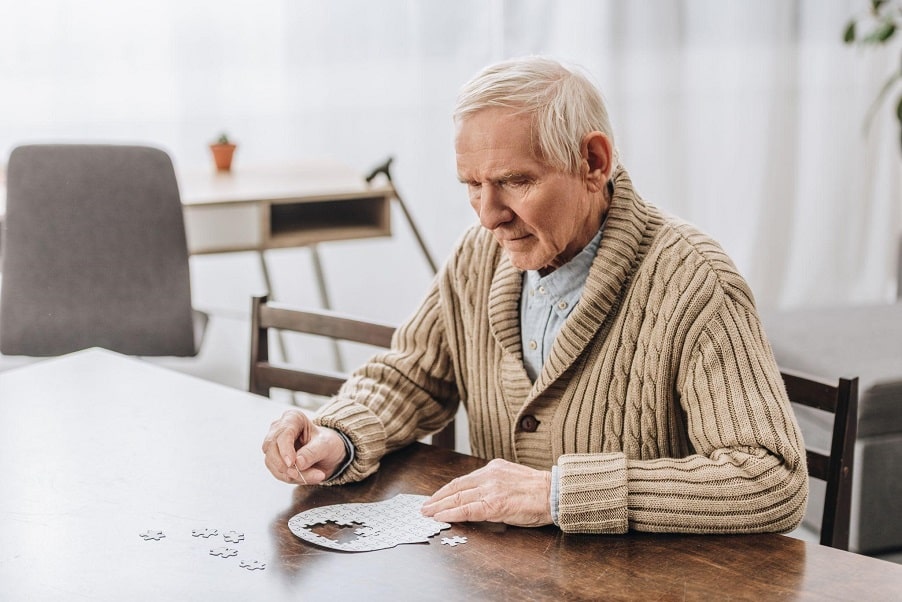
The National Institute of Health defines Alzheimer’s disease as a brain disorder that can slowly destroy memory and thinking skills. This can impact someone’s ability to carry out even simple tasks and may result in changes in behavior and personality. Some six million Americans have Alzheimer’s disease.
Persons with Alzheimer’s disease or dementia, another condition that negatively impacts their memory, may not recall the cause or source of their abuse. Ongoing check-ins with persons who have such cognitive conditions are important to ensure that they’re not being abused.
Social Isolation
Caregivers often abuse elders when they’re socially isolated and have no one checking in on them.
This is how abuse goes undetected and worsens. There is no way to know if their personality is changing or if they are experiencing physical injuries that they are then healing from without any reports.
Physical Weakness
It’s an unfortunate fact that predators prey upon the weak, and it is no different when it comes to nursing home abuse. Caregivers who would abuse an older person are looking for a target that they believe can’t put up a fight.
Who commits nursing home abuse?
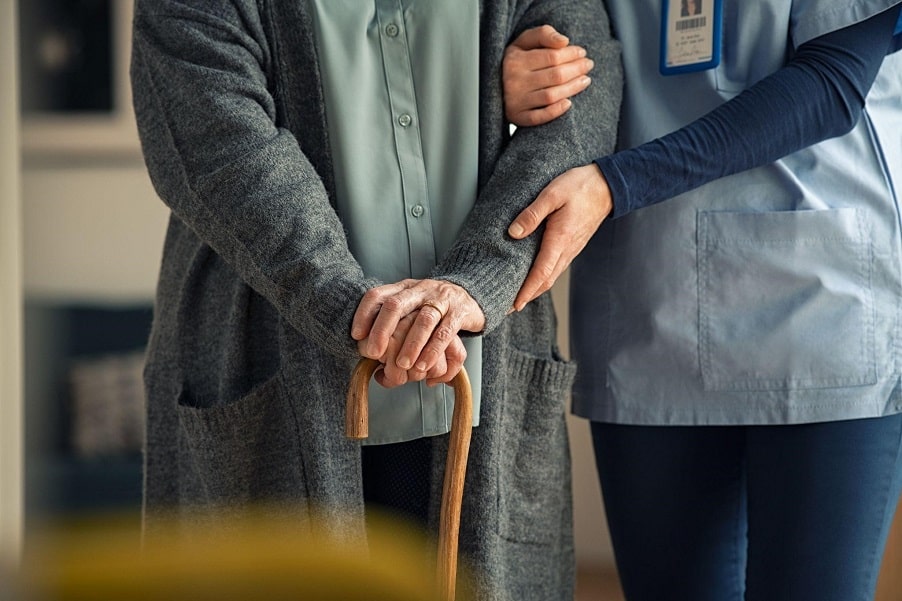
When you or a loved one has been the victim of nursing home abuse, you will generally be pursuing compensation from the insurance company of the nursing home.
This is because nursing home abuse can be perpetuated by employees of the nursing home or when the nursing home fails to identify when abuse is happening from another source.
Staff
Caregivers themselves are often the individuals engaging in the direct abuse of elder persons. This is because the nursing home staff have the most direct contact with them, and thereby the greatest opportunity to abuse them.
When a staff member of the nursing home has engaged in abuse, their employer will be liable and you will be entitled to compensation from their insurance company.
Administrators
Administrators can be responsible for nursing home abuse whether they directly engaged in the abuse or if they knew of it and allowed it to continue. When the management or administration is the source of the abuse, you might be better served to go straight to the police, as we’ll discuss below.
Other Residents
It’s the responsibility of the nursing home to keep all residents safe, including from abuse by other residents. When the nursing home fails to detect and prevent abuse by other residents, they will be liable.
What to Do if You Suspect Abuse
There are some steps that can be taken to help to stop elder abuse immediately and to begin collecting evidence in support of your claim or case to collect compensation.
1. Speak with the victim.
The experience of the elder person is an important piece of information that will serve as evidence in your case or claim. However, many elder persons may have physical or mental disabilities that prevent them from fully reporting abuse.
When this is the case, collecting evidence from witnesses and other involved parties will help to put together the best case in your favor.
2. Speak with the management/administration.
It can be helpful to involve management and the administration as soon as you are aware of the potential of abuse. They will be required to generate a report and move forward with their own investigation, or risk being charged with engaging in the abuse directly.
3. Call the police.
Filing a report with the police can provide an important piece of evidence in support of your case. The police will investigate your report and may collect evidence that proves the abuse that can then be used in support of your claim or case.
You can only collect compensation when you can prove that abuse happened, and you can only collect damages that you can prove with evidence that a court would accept.
4. Hire an Albany nursing home abuse lawyer.
To ensure that you collect the full compensation that you are entitled to by putting together a strong case supported by evidence, connect with an Albany nursing home abuse lawyer.
Suspect that your loved one is suffering abuse at their nursing home? Please call us.
If you suspect that your loved one has been the victim of nursing home abuse, connect with an lawyer as soon as possible. Your lawyer will begin the process by collecting evidence to prove the abuse, and also accurately and completely measure the costs and damages associated with the resulting injuries.
Financial abuse entitles you to restitution for whatever was taken with the potential for additional damages. Physical or mental abuse will entail damages for related medical costs, in addition to the potential of damages for pain and suffering.
Your Albany nursing home abuse lawyer from The Shrable Law Firm, P.C. will carefully review your case and determine what the best course of action is.
For your risk-free, cost-free initial case assessment with The Shrable Law Firm, P.C., schedule a consultation or call us at (229) 297-7021.
Free Case Review
Wrongful Death Claim
$750,000
Albany Personal Injury Lawyer
Albany Office Address
Address : 127 N. Westover Blvd. Ste 3 Albany,
GA 31707
Phone: (229)-349-6291


